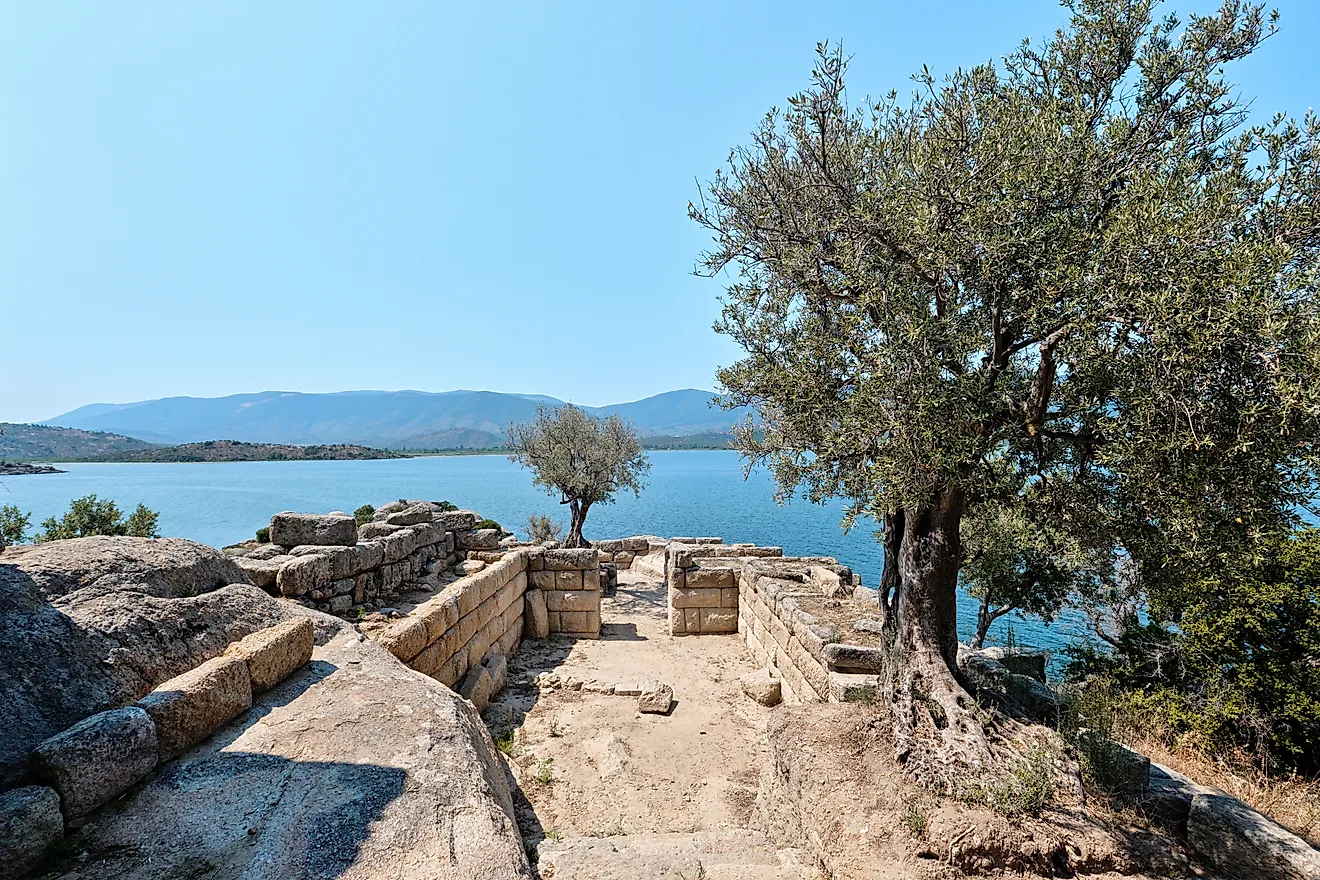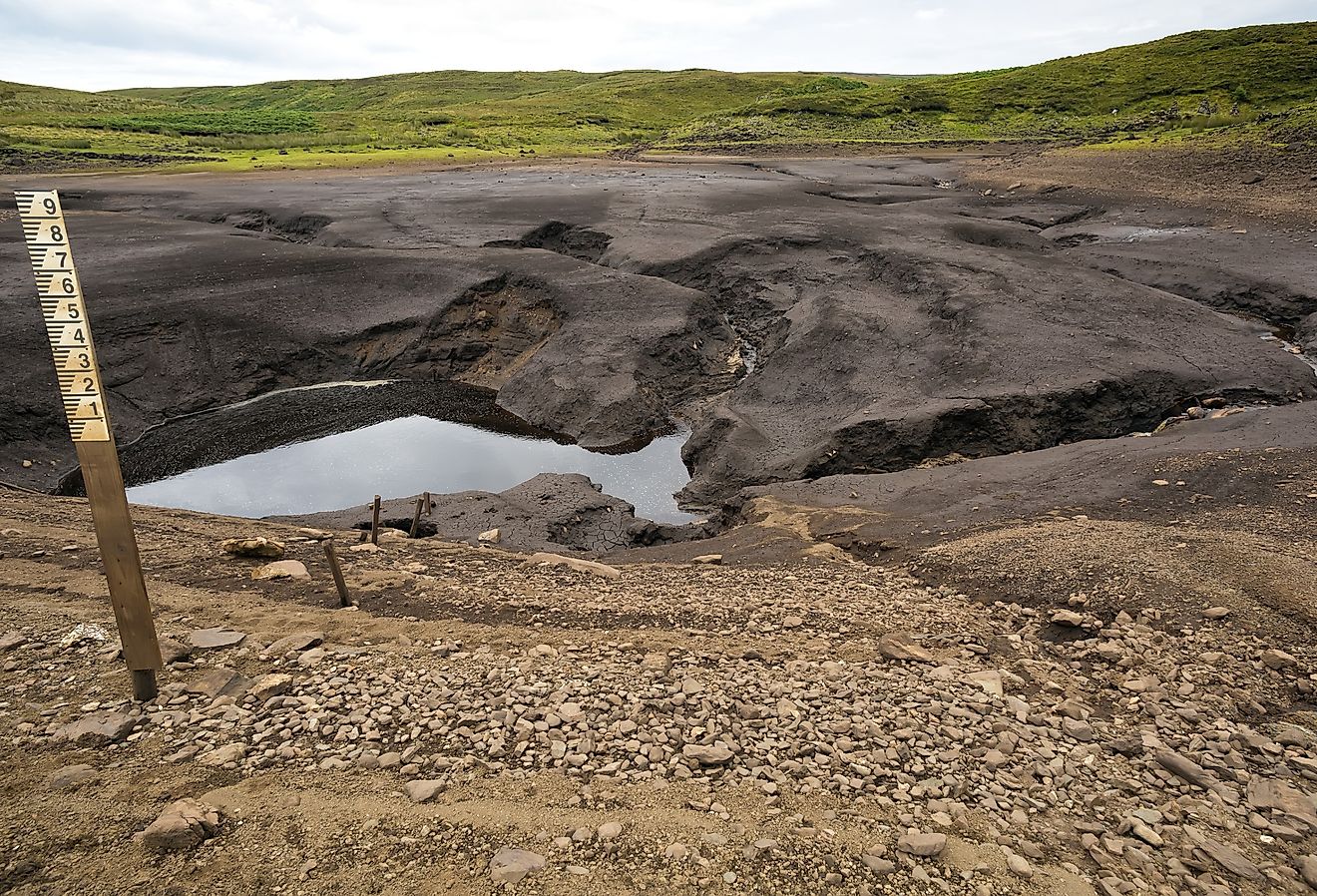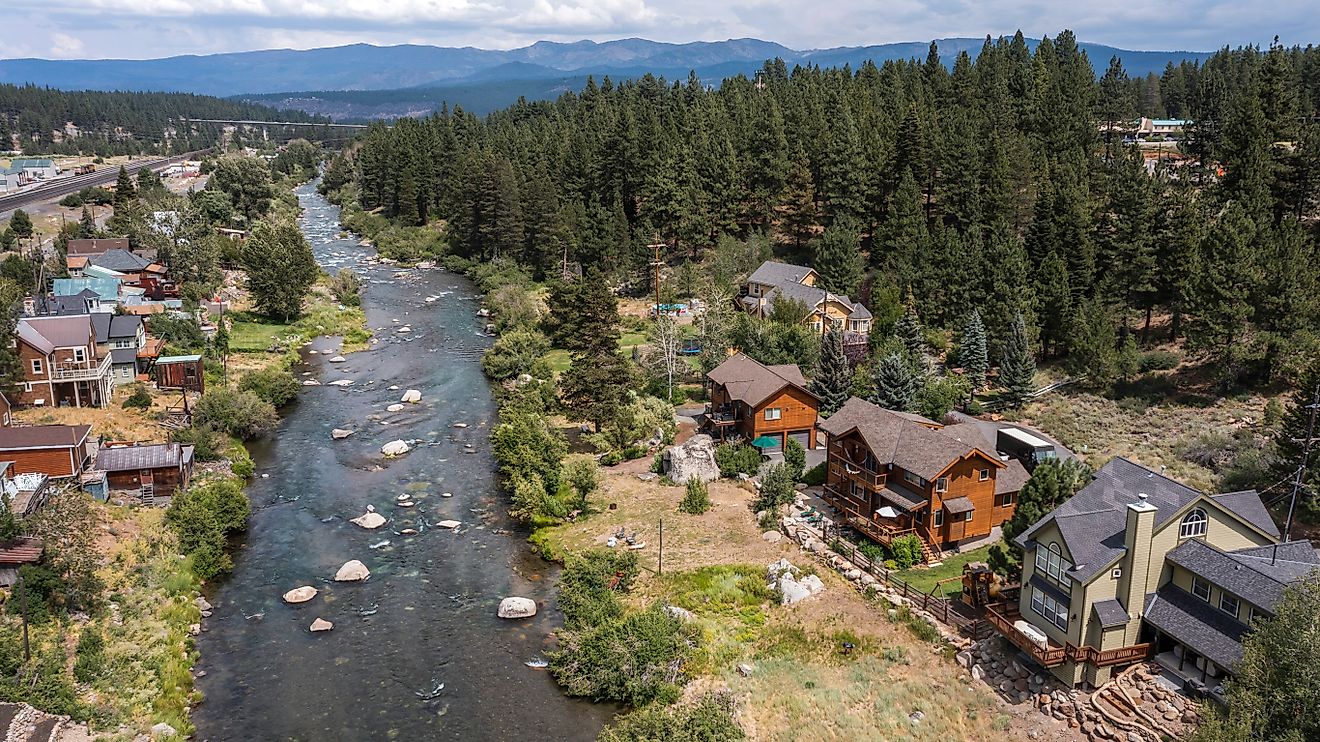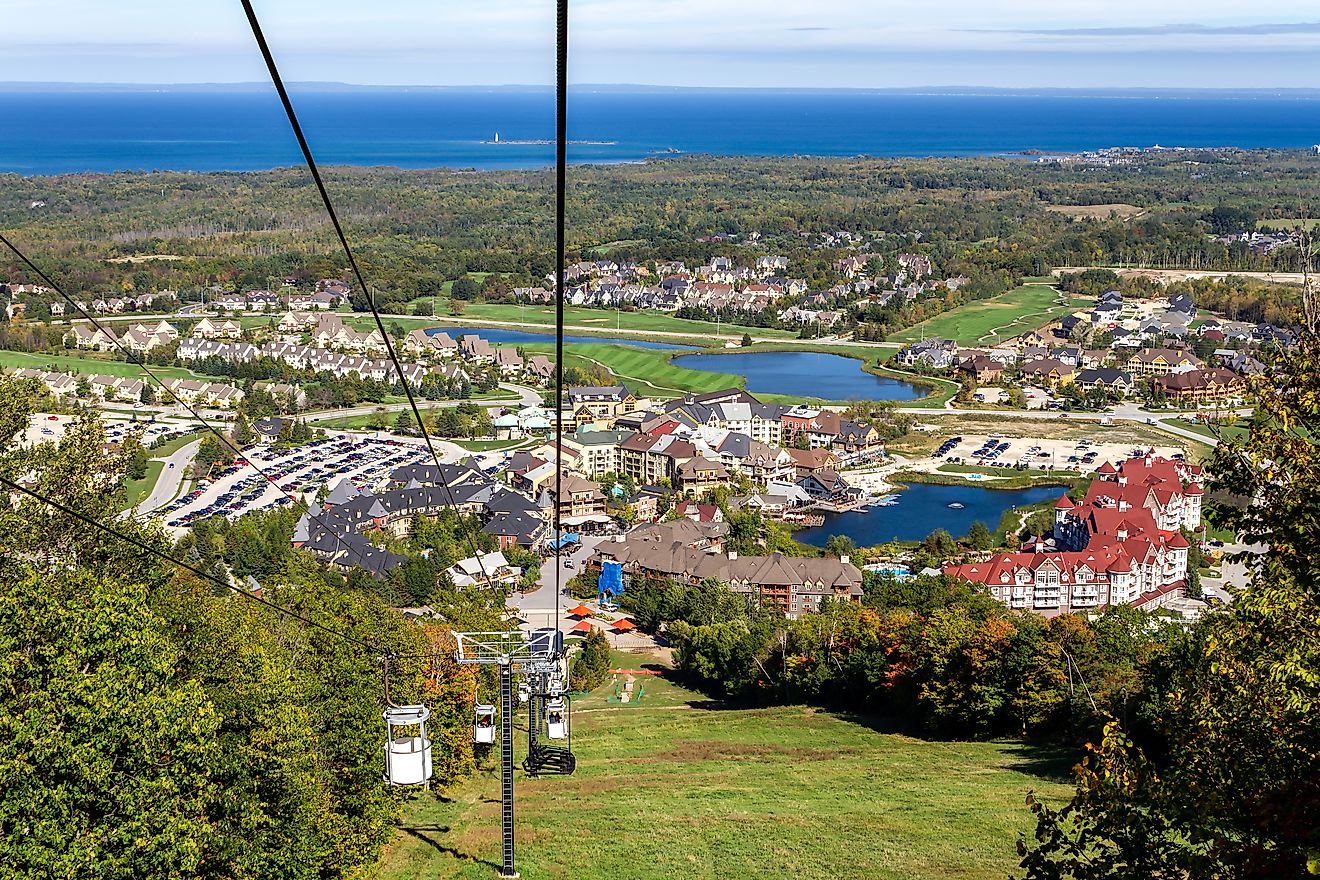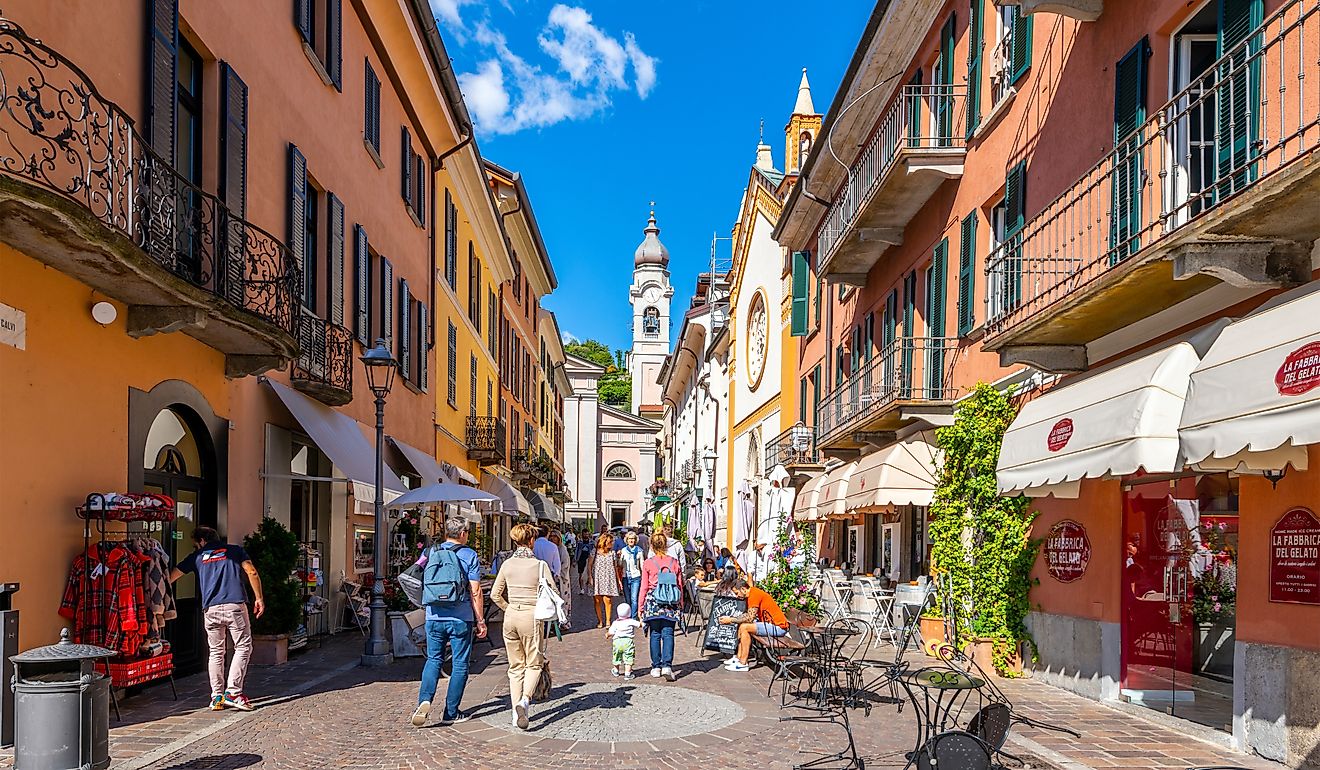Antarctica
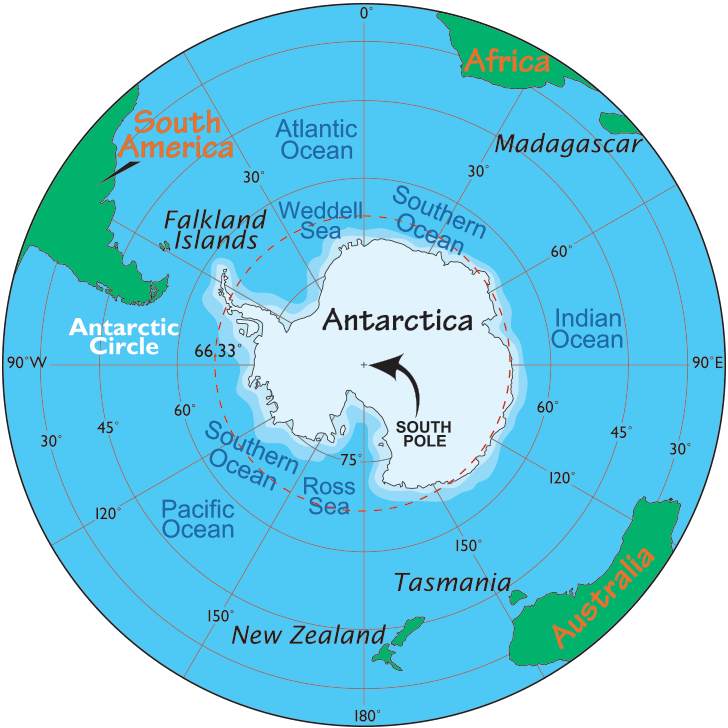
Antarctic Circle
The Antarctic (or Antarctica) Circle is one of the five major circles or parallels of latitude that mark maps of the Earth.
Shown on the image above with a dashed red line, this parallel of latitude sits at approximately 66.33° south of the Equator. It marks the northern limit of the area within which, for one day or more each year, the sun does not set nor does it rise.
The length of continuous day or night increases southward from the Antarctic Circle, mounting to six months at the South Pole.
Antarctic Links
- Antarctica Glaciological Data Center
- Antarctica Project
- Antarctica Penguins
- Antarctica Seals
- Arctic Circle page
- South Pole
- Travel to Antarctica
Antarctic Maps
Antarctic Fast Facts
- Size: 13,209,000 sq km, 5,100,021 sq miles
( varies due to changing ice shelves) - Percent of Earth's Land: 8.9%
- Status Antarctica, almost 98% solid ice, was finally considered a continent in 1840, and not just a group of isolated islands. Today it has active territorial claims submitted by Argentina, Australia, Chile, France, New Zealand, Norway and the United Kingdom. (Many of these claims are not recognized by some countries and remain in a constant disputed status)
- Capital City none
- Climate Antarctica is the coldest and windiest spot on the planet. In fact, the lowest temperature ever recorded on Earth was recorded in Antarctica (-129.3ºF) and the mean winter temperatures range from -40º to -94ºF. Winds are commonly measured at up to 200 miles per hour.
- Current Weather at the South Pole.
- Highest Point Vinson Massif at 16,066 ft. (4,897 m) (map)
- Lowest Point Bentley Subglacial Trench, -2,555 m)
- Latitude/Longitude 90° S, 0.00° E
- Official Language none
- Official Currency none
- Population Officially none, but governmental research stations are populated with small groups of scientists at all times. In addition, during the 2011/2012 season, nearly 417,000 tourists visited the continent.

